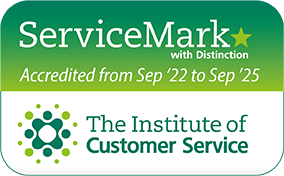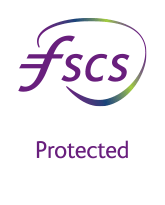Spoofed, cloned, or copycat websites are becoming more common as criminals look for ways to exploit people online. It is important to be aware that these sites are out there, and more importantly, how to spot them, in order to keep your information and money safe and secure.
What is a copycat or spoofed site?
There are a number of websites which might be copied by fraudsters for nefarious means, but they generally fall into two broad categories:
Websites offering ‘official’ services
There are a number of examples here, but common ones include passport applications, tax returns, pension advice, or driving test bookings. These sites mimic official or government websites and catch people out by getting them to pay over the odds for services that would usually be cheaper, or even free, when accessed through the official website.
Websites pretending to be retailers or reputable businesses
These websites impersonate retailers or businesses you might buy a product or service from. Think Apple, Amazon, or even your building society, bank or credit card provider. The aim of these websites is to steal your information and/or your money.
Real or fake?
There are a number of key differences between copycat sites and legitimate sites, but it can often be tricky to sort the real from the fake.
The first thing to examine is the website address. Secure websites show a padlock symbol to the left of the address, which means the website is taking steps to protect your information. However, this is not a failsafe and shouldn’t be relied on alone – there are a number of other elements you should consider before acting.
The next thing to check is the way the link looks. For example, official UK government websites will always end with .gov.uk. If it doesn’t, no matter the circumstances, it is not real, and you could be at risk.
Other things to look out for include:
- Spelling and grammar - are there obvious errors you wouldn’t expect to see?
- Unusual formatting, images or links – things that look strange often are!
- How you got to the website – did you get an email from an address you don’t recognise, or did you arrive there from a search engine such as Google or Bing? If the latter is true, be aware of paid advertising. These are search results that appear in boxes at the top or to the righthand side of the results page – these can be very tempting to click on but note that the space can be bought by anyone, even criminals.
- If you’re buying something, how are you being asked to pay? Scam websites often ask for payment using unusual methods such as a pre-paid card.
- Are you being asked to give out personal information? Legitimate websites won’t ask for your passwords or pin numbers.
If you’re unsure, the best thing to do is check before you act. Citizen’s Advice have a fantastic online tool which can help you identify if a website you’re using is likely to be a scam or not.
You can also stay up to date with common financial scams and how to spot them on the Financial Conduct Authority website.
How do I know if a Newbury Building Society website is legitimate?
Remember these steps to determine whether you’re using a legitimate Newbury Building Society webpage:
- Check the website address – if it does not start with www.newbury.co.uk then chances are it does not belong to us! Remember to look out for the padlock sign to the left of the URL.
- Scroll to the bottom of the website – you should see our authorisation statements, Financial Services register number, complaints procedure and our copyright statement. You can also search for and read our Privacy Policy. These are all signs that the website is genuine.
- Look at the spelling, grammar, images and logos – is the standard what you would expect of Newbury Building Society?
Most importantly, if you’re unsure for any reason at all, call us on 01635 555 700 or email enquiries@newbury.co.uk. We will be happy to confirm whether the website you are using is legitimate.
What to do if you have been scammed
If you think you may have given important details away through a scam website, there are a number of steps you should take. Find out what to do on the Citizen’s Advice website.
If you are worried that your Newbury Building Society accounts have been compromised, please contact us as soon as you are aware, on 01635 555 700.




